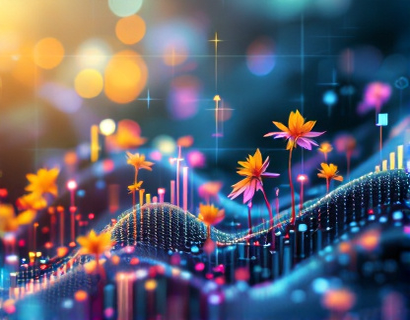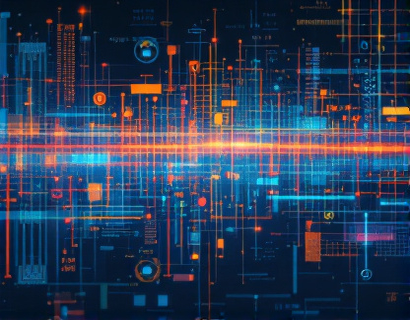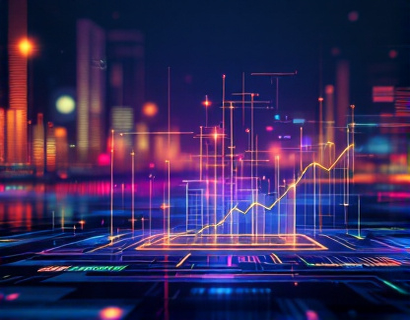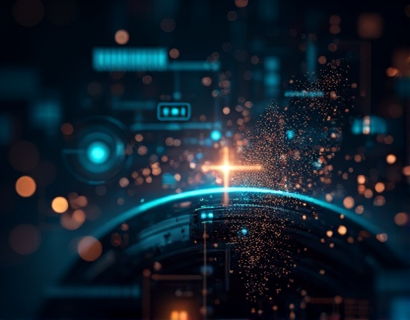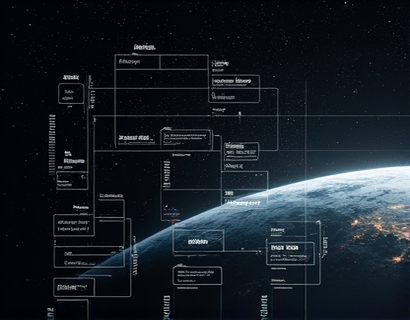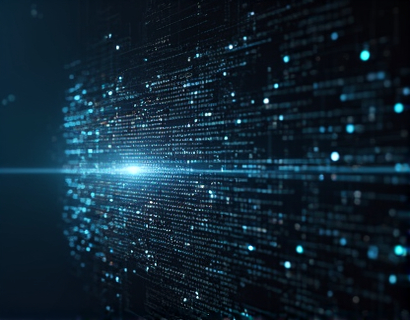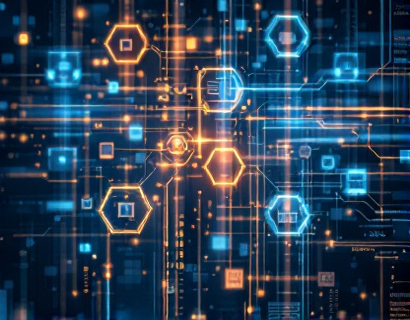Decentralized DAO Management: Revolutionizing Governance with Advanced Analytics and Collaboration Tools
In the rapidly evolving landscape of decentralized finance and autonomous organizations, the management of Decentralized Autonomous Organizations (DAOs) has become a critical area of focus. Traditional governance models are being transformed by innovative software solutions that leverage advanced analytics and collaboration tools. This shift aims to enhance transparency, efficiency, and decision-making within DAOs, enabling them to thrive in a complex and dynamic environment.
Understanding DAO Governance
Before delving into the advancements in DAO management, it's essential to understand the core principles of DAO governance. A DAO is a digital entity governed by smart contracts on a blockchain, allowing for decentralized decision-making. Members of the DAO, often token holders, propose and vote on changes to the organization's rules and direction. This model aims to eliminate centralized control, reduce the risk of corruption, and foster a more inclusive and democratic governance structure.
The Need for Advanced Governance Tools
Despite the promising aspects of DAO governance, managing these decentralized entities presents unique challenges. The lack of centralized oversight can lead to inefficiencies, miscommunications, and difficulties in aggregating and analyzing data. Traditional tools and methods are often inadequate for the complexities of DAO governance, necessitating the development of advanced software solutions. These tools are designed to streamline processes, enhance collaboration, and provide comprehensive analytics to support informed decision-making.
Streamlining DAO Management
Advanced governance software for DAOs integrates a suite of features that simplify and optimize the management process. One of the primary benefits is the automation of routine tasks, such as proposal tracking, voting mechanisms, and record-keeping. This automation reduces the administrative burden on governors, allowing them to focus on strategic decision-making and long-term planning.
Moreover, these platforms provide a centralized interface for all governance activities, ensuring that all members have access to the same information in real-time. This transparency is crucial for building trust and ensuring that decisions are made in the best interest of the DAO. By consolidating data and processes, governance software helps to eliminate discrepancies and errors that can arise from manual management.
Comprehensive Analytics for Informed Decisions
One of the most significant advantages of advanced governance tools is their ability to provide deep insights through comprehensive analytics. These analytics tools analyze various data points, such as token distribution, voting patterns, and proposal outcomes, to offer a holistic view of the DAO's health and performance. Governors can use these insights to identify trends, predict future scenarios, and make data-driven decisions.
For instance, analytics can reveal which proposals are gaining traction and which areas require more attention. This information is invaluable for prioritizing tasks and allocating resources effectively. Additionally, sentiment analysis can gauge the community's mood and identify potential issues before they escalate, enabling proactive measures to maintain harmony and stability within the DAO.
Enhancing Collaboration and Communication
Effective collaboration is the backbone of a successful DAO. Advanced governance software facilitates seamless communication and collaboration among members, regardless of their geographical location. Features such as integrated chat platforms, discussion forums, and collaborative document editing tools ensure that all voices are heard and that ideas can be shared and developed in real-time.
These tools also support the formation of working groups and task forces, allowing for specialized teams to focus on specific projects or issues. By fostering a collaborative environment, governance software helps to break down silos and encourages cross-functional cooperation, leading to more innovative and effective solutions.
Enhancing Transparency and Trust
Transparency is a cornerstone of DAO governance, and advanced software tools play a crucial role in maintaining and enhancing this transparency. By providing real-time access to all governance activities, financial transactions, and decision-making processes, these tools ensure that all members can monitor the organization's progress and hold leaders accountable.
Blockchain's inherent transparency is further amplified by governance software, which can integrate with blockchain networks to provide immutable records of all actions. This level of transparency builds trust among members and external stakeholders, fostering a more robust and resilient DAO ecosystem.
Case Studies and Real-World Applications
Several DAOs have successfully implemented advanced governance tools, demonstrating their practical benefits. For example, a decentralized content platform used a governance platform to streamline content moderation and community engagement. The platform's analytics tools helped identify popular content creators and trending topics, allowing the DAO to allocate resources more effectively. As a result, the platform saw a significant increase in user engagement and token value.
Another example is a decentralized lending protocol that utilized governance software to manage risk and optimize lending parameters. The platform's real-time analytics provided insights into borrower behavior and market conditions, enabling the DAO to adjust interest rates and loan terms dynamically. This adaptability led to improved loan recovery rates and enhanced trust among lenders and borrowers.
Challenges and Considerations
While the benefits of advanced governance tools are clear, there are challenges and considerations that DAOs must address. One of the primary challenges is the learning curve associated with adopting new technology. Governors and members need to be educated and trained to fully leverage the capabilities of these tools. Providing comprehensive onboarding and support resources is essential to ensure smooth adoption.
Another consideration is the potential for increased complexity. While governance software aims to simplify management, the addition of new features and tools can sometimes complicate the governance process. It's crucial to strike a balance between functionality and usability, ensuring that the tools enhance rather than hinder the governance experience.
Future Trends in DAO Governance
The future of DAO governance is likely to see further integration of advanced technologies such as artificial intelligence and machine learning. These technologies can enhance analytics capabilities, providing even more precise insights and predictive capabilities. AI-driven recommendation systems can suggest optimal governance actions based on historical data and current trends, further empowering governors to make informed decisions.
Interoperability between different DAOs and blockchain platforms is another area of focus. As the ecosystem grows, the ability to collaborate and integrate with other organizations will become increasingly important. Governance tools that support cross-chain interactions and interoperability will play a vital role in fostering a more connected and cohesive decentralized landscape.
Conclusion
Advanced governance tools are revolutionizing the way DAOs are managed, offering a range of benefits that enhance transparency, efficiency, and decision-making. By leveraging comprehensive analytics and collaboration features, DAOs can overcome traditional governance challenges and unlock their full potential. As the ecosystem continues to evolve, the integration of advanced technologies will further transform governance, paving the way for more resilient and successful decentralized organizations.



